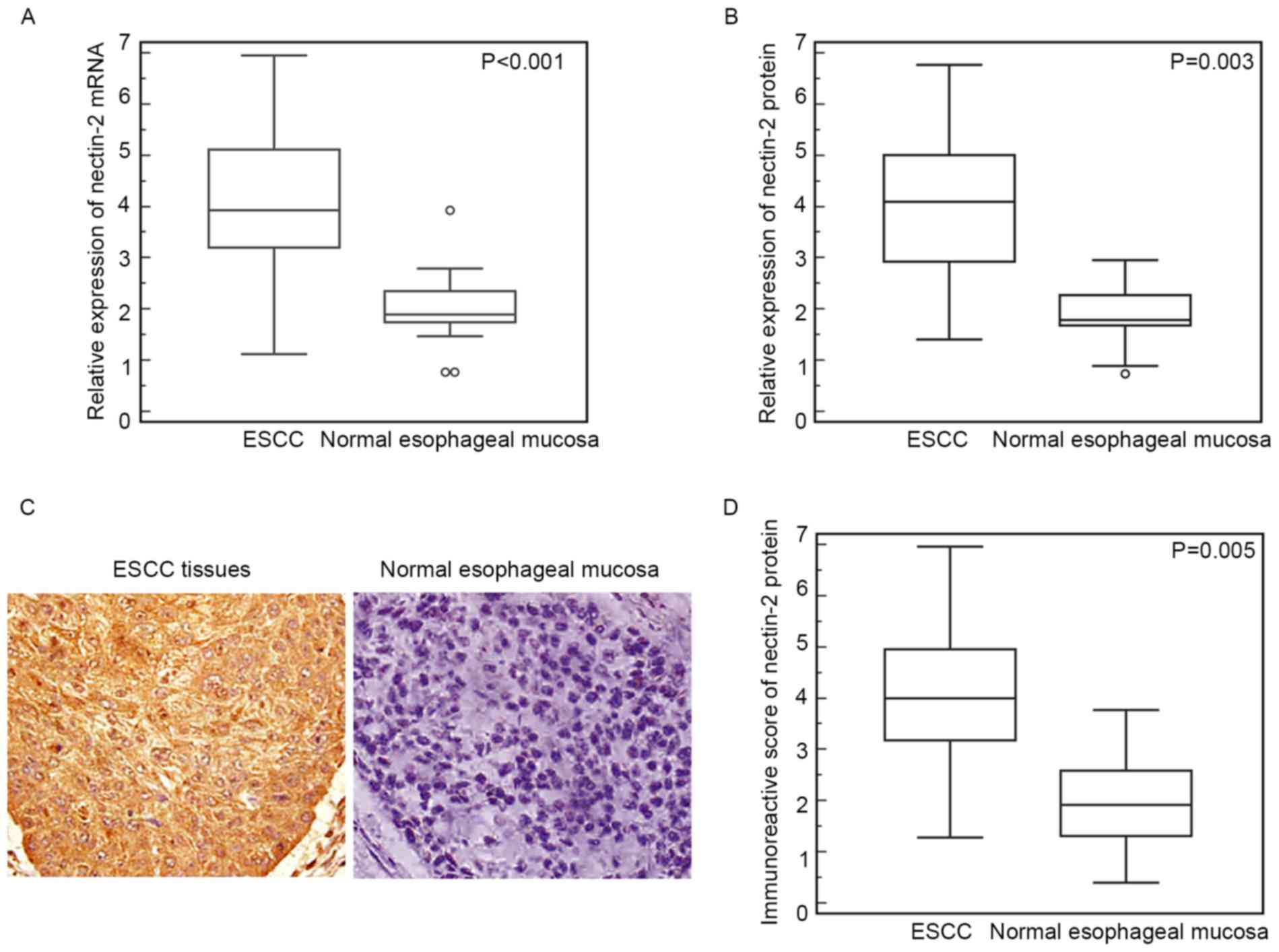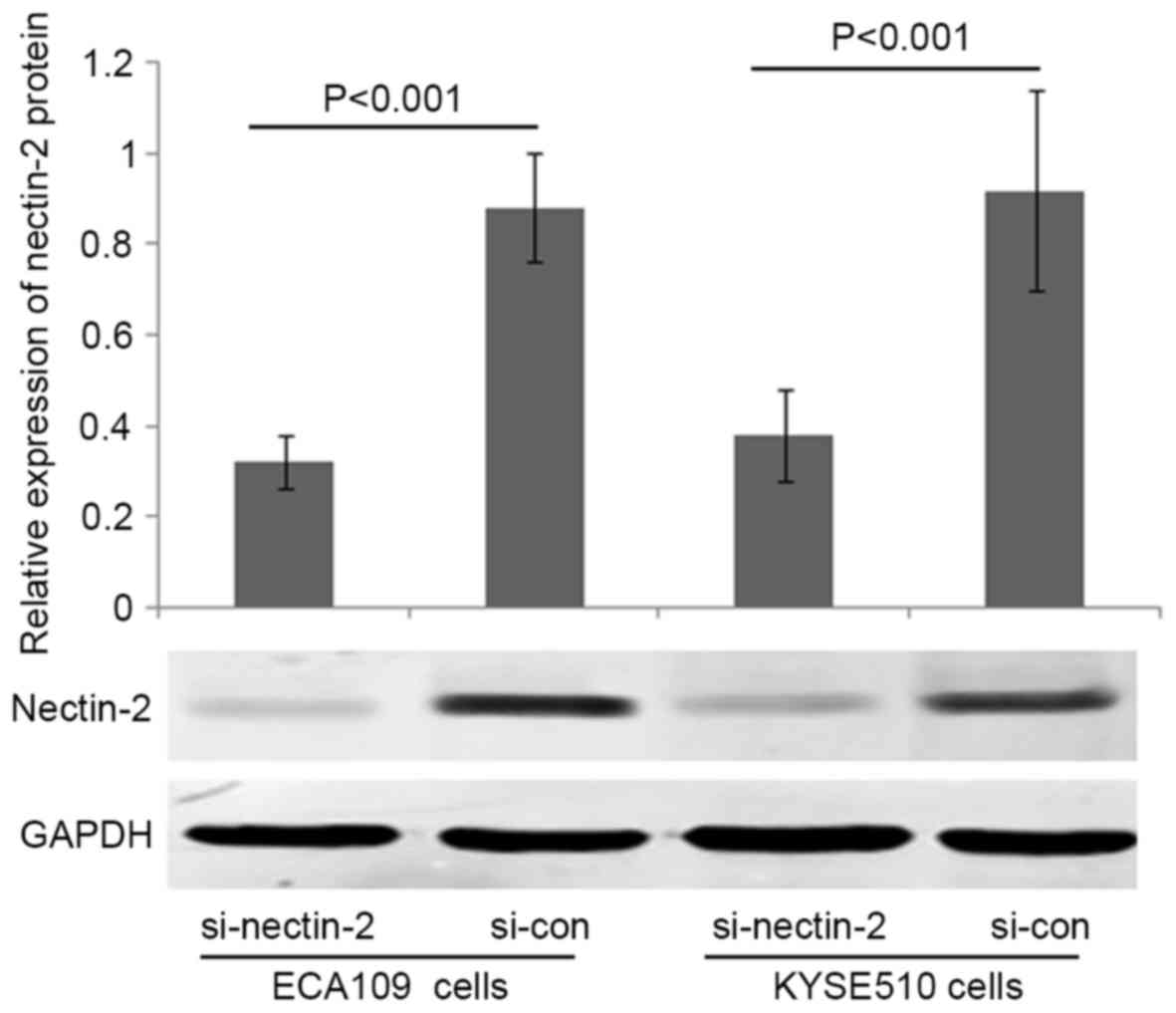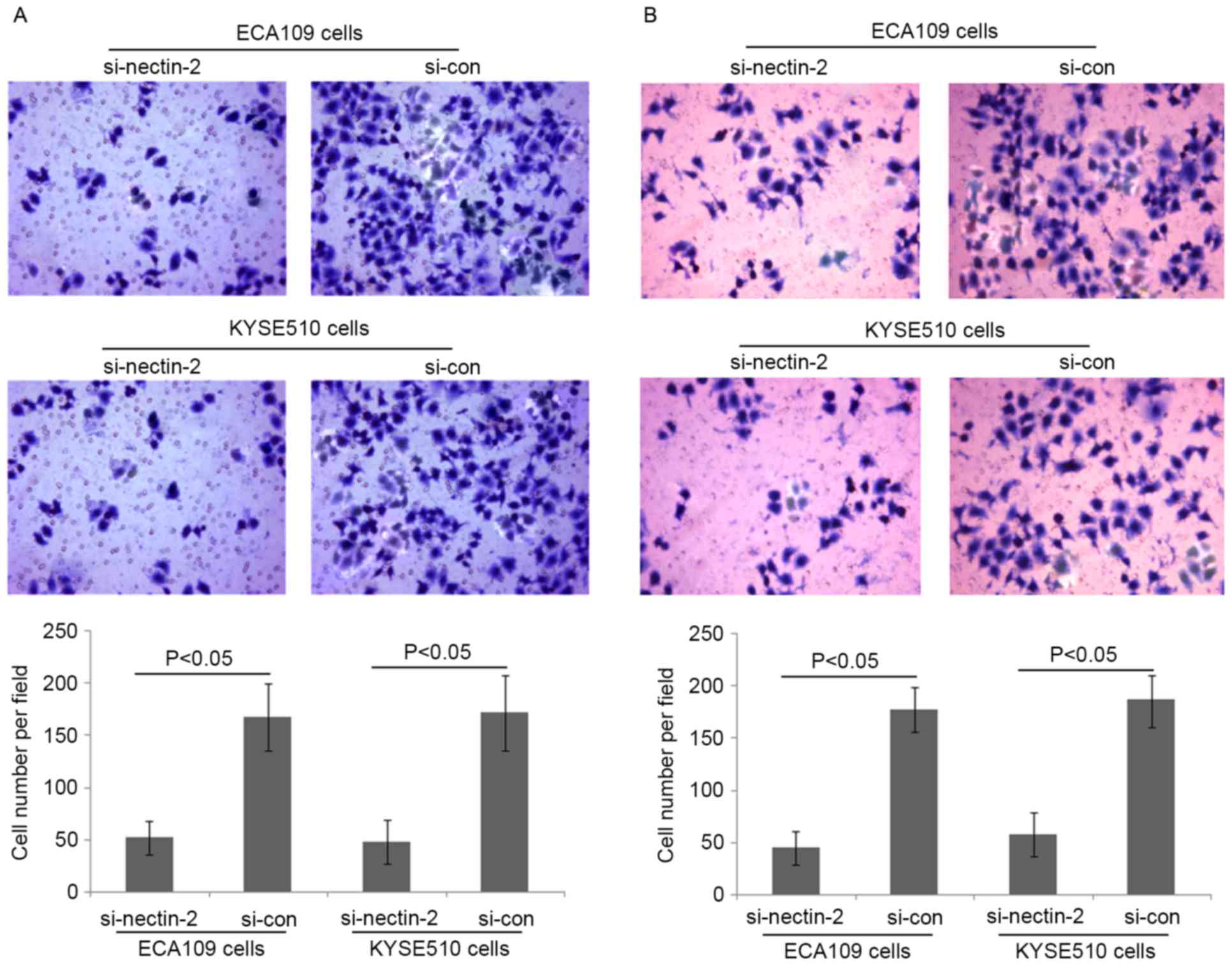|
1
|
Baba Y, Watanabe M, Yoshida N and Baba H:
Neoadjuvant treatment for esophageal squamous cell carcinoma. World
J Gastrointest Oncol. 6:121–128. 2014. View Article : Google Scholar : PubMed/NCBI
|
|
2
|
Shang L and Wang M: Molecular alterations
and clinical relevance in esophageal squamous cell carcinoma. Front
Med. 7:401–410. 2013. View Article : Google Scholar : PubMed/NCBI
|
|
3
|
Yang CS, Chen X and Tu S: Etiology and
prevention of esophageal cancer. Gastrointest Tumors. 3:3–16. 2016.
View Article : Google Scholar : PubMed/NCBI
|
|
4
|
Li JS, Ying JM, Wang XW, Wang ZH, Tao Q
and Li LL: Promoter methylation of tumor suppressor genes in
esophageal squamous cell carcinoma. Chin J Cancer. 32:3–11. 2013.
View Article : Google Scholar : PubMed/NCBI
|
|
5
|
Lehrbach DM, Nita ME and Cecconello I:
Molecular aspects of esophageal squamous cell carcinoma
carcinogenesis. Arq Gastroenterol. 40:256–261. 2003. View Article : Google Scholar : PubMed/NCBI
|
|
6
|
Devilard E, Xerri L, Dubreuil P, Lopez M
and Reymond N: Nectin-3 (CD113) interacts with Nectin-2 (CD112) to
promote lymphocyte transendothelial migration. PLoS One.
8:e774242013. View Article : Google Scholar : PubMed/NCBI
|
|
7
|
Zhang X and Lui WY: Dysregulation of
nectin-2 in the testicular cells: An explanation of cadmium-induced
male infertility. Biochim Biophys Acta. 1839:873–884. 2014.
View Article : Google Scholar : PubMed/NCBI
|
|
8
|
Liu J, Qian X, Chen Z, Xu X, Gao F, Zhang
S, Zhang R, Qi J, Gao GF and Yan J: Crystal structure of cell
adhesion molecule nectin-2/CD112 and its binding to immune receptor
DNAM-1/CD226. J Immunol. 188:5511–5520. 2012. View Article : Google Scholar : PubMed/NCBI
|
|
9
|
Mandai K, Rikitake Y, Mori M and Takai Y:
Nectins and nectin-like molecules in development and disease. Curr
Top Dev Biol. 112:197–231. 2015. View Article : Google Scholar : PubMed/NCBI
|
|
10
|
Samanta D and Almo SC: Nectin family of
cell-adhesion molecules: Structural and molecular aspects of
function and specificity. Cell Mol Life Sci. 72:645–658. 2015.
View Article : Google Scholar : PubMed/NCBI
|
|
11
|
Pende D, Spaggiari GM, Marcenaro S,
Martini S, Rivera P, Capobianco A, Falco M, Lanino E, Pierri I,
Zambello R, et al: Analysis of the receptor-ligand interactions in
the natural killer-mediated lysis of freshly isolated myeloid or
lymphoblastic leukemias: Evidence for the involvement of the
Poliovirus receptor (CD155) and Nectin-2 (CD112). Blood.
105:2066–2073. 2005. View Article : Google Scholar : PubMed/NCBI
|
|
12
|
Wu MR, Zhang T, Alcon A and Sentman CL:
DNAM-1-based chimeric antigen receptors enhance T cell effector
function and exhibit in vivo efficacy against melanoma. Cancer
Immunol Immunother. 64:409–418. 2015. View Article : Google Scholar : PubMed/NCBI
|
|
13
|
Karabulut M, Gunaldi M, Alis H, Afsar CU,
Karabulut S, Serilmez M, Akarsu C, Seyit H and Aykan NF: Serum
nectin-2 levels are diagnostic and prognostic in patients with
colorectal carcinoma. Clin Transl Oncol. 18:160–171. 2016.
View Article : Google Scholar : PubMed/NCBI
|
|
14
|
Miao X, Yang ZL, Xiong L, Zou Q, Yuan Y,
Li J, Liang L, Chen M and Chen S: Nectin-2 and DDX3 are biomarkers
for metastasis and poor prognosis of squamous cell/adenosquamous
carcinomas and adenocarcinoma of gallbladder. Int J Clin Exp
Pathol. 6:179–190. 2013.PubMed/NCBI
|
|
15
|
Oshima T, Sato S, Kato J, Ito Y, Watanabe
T, Tsuji I, Hori A, Kurokawa T and Kokubo T: Nectin-2 is a
potential target for antibody therapy of breast and ovarian
cancers. Mol Cancer. 12:602013. View Article : Google Scholar : PubMed/NCBI
|
|
16
|
Liang S, Yang Z, Li D, Miao X, Yang L, Zou
Q and Yuan Y: The clinical and pathological significance of
Nectin-2 and DDX3 expression in pancreatic ductal adenocarcinomas.
Dis Markers. 2015:3795682015. View Article : Google Scholar : PubMed/NCBI
|
|
17
|
Huang X, Qu P, Chen Y, Zhou X, Wu Y, Liu
F, Wang D, Zhang J and An J: Low expression of CD112 is associated
with poor overall survival in patients with hepatocellular
carcinoma. Hum Pathol. 45:1944–1950. 2014. View Article : Google Scholar : PubMed/NCBI
|
|
18
|
Yamasaki M, Miyata H, Miyazaki Y,
Takahashi T, Kurokawa Y, Nakajima K, Takiguchi S, Mori M and Doki
Y: Evaluation of the nodal status in the 7th edition of the
UICC-TNM classification for esophageal squamous cell carcinoma:
Proposed modifications for improved survival stratification: Impact
of lymph node metastases on overall survival after esophagectomy.
Ann Surg Oncol. 21:2850–2856. 2014. View Article : Google Scholar : PubMed/NCBI
|
|
19
|
Chen G, Peng J, Zhu W, Tao G, Song Y, Zhou
X and Wang W: Combined downregulation of microRNA-133a and
microRNA-133b predicts chemosensitivity of patients with esophageal
squamous cell carcinoma undergoing paclitaxel-based chemotherapy.
Med Oncol. 31:2632014. View Article : Google Scholar : PubMed/NCBI
|
|
20
|
Livak KJ and Schmittgen TD: Analysis of
relative gene expression data using real-time quantitative PCR and
the 2(-Delta Delta C(T)) method. Methods. 25:402–408. 2001.
View Article : Google Scholar : PubMed/NCBI
|
|
21
|
Chen MQ, Xu BH and Zhang YY: Analysis of
prognostic factors for esophageal squamous cell carcinoma with
distant organ metastasis at initial diagnosis. J Chin Med Assoc.
77:562–566. 2014. View Article : Google Scholar : PubMed/NCBI
|
|
22
|
Salian V, Dinakar C, Shetty P and Ajila V:
Etiological trends in oral squamous cell carcinoma: A retrospective
institutional study. Cancer Transl Med. 2:33–36. 2016. View Article : Google Scholar
|
|
23
|
Sakisaka T and Takai Y: Biology and
pathology of nectins and nectin-like molecules. Curr Opin Cell
Biol. 16:513–521. 2004. View Article : Google Scholar : PubMed/NCBI
|
|
24
|
Sakisaka T, Ikeda W, Ogita H, Fujita N and
Takai Y: The roles of nectins in cell adhesions: Cooperation with
other cell adhesion molecules and growth factor receptors. Curr
Opin Cell Biol. 19:593–602. 2007. View Article : Google Scholar : PubMed/NCBI
|

















